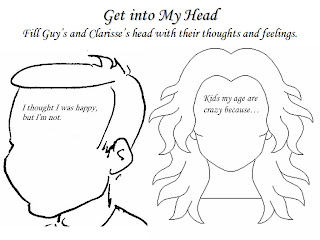- Turn in vocabulary from reading assignment #1
- Returned Quiz #1, went over answers
- Continued Reading. We ended on page 48 last class. Read from 48 to 68 (the end of Part 1). This is the end of reading assignment #2. There will be a quiz on January 5 over reading assignment #2. Answer study guide questions to prepare.
- Vocabulary Homework: For the 5 remaining words from #2 vocabulary, complete a vocabulary activity for each. Due January 5
If you were absent, answer the following guided reading questions as you read. We talked about these as we read.
Fahrenheit 451 Guided Reading Questions
Page 48-68
- How does Mildred respond to Montag the morning after he watched the lady burn? What does this say about their relationship?
- How does Mildred respond when Montag tells her about the lady?
- What is going on while Mildred is trying to straighten the bed? How does Montag feel?
- Explain the “devolution” of books as Beatty tells it to Montag. How is this happening today? Give an example or 2.
- How did “mass production” affect society?
- How have the schools changed? Give an example of this in today’s school system or in your own classes.
- What does Beatty say about the minorities?
Given this, of what different minority classes are you considered to be a part?
How did minorities play a part in making books like “vanilla tapioca”? - What kind of books were left? What are people in this society allowed to read?
- What 3 things resulted in the “loss” of books?
- What does Betty say about people being “equal”?
- What did books, or the stories inside books, do to people that warranted their (the books) burning? How did they make them feel? What made them feel this way?
- Why does the age kids start Kindergarten keep getting lowered?
- What is the function of sports?
- What happened to porches and gardens? Why?
- Why is Mildred upset about Guy not wanting to go to work and wanting to quit his job?
on page 65, Guy says “I’m not happy.” - In your own words, from what you have read so far, explain why he isn’t happy.
- What does Guy share with Millie?
- Write 5 questions from what you read on pages 63-68. They should begin…
Who…
What…
Where…
How…
Why… - Extra credit
5 points each: 1)Who was Dante? 2)Swift? 3)Marcus Aurelius? What did each write?
10 points each: 1) What is Little Black Sambo 2) Uncle Tom’s Cabin? Who did they offend and why? (Read about these to find out “why.”)


.bmp)